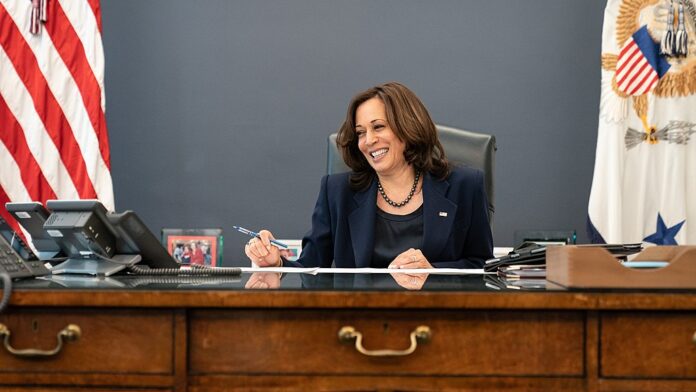Vice President Harris calls for immediate action to end the conflict and secure the release of hostages in her first significant diplomatic push as a likely Democratic nominee
On July 25, 2024, Vice President Kamala Harris urged Israeli Prime Minister Benjamin Netanyahu to agree to a cease-fire deal to halt the ongoing conflict in Gaza and facilitate the release of hostages. Speaking to reporters after their meeting at the White House, Harris emphasized the urgency of concluding an agreement, stating, “Let’s get the deal done so we can get a cease-fire to end the war.”
The Vice President’s remarks come amid heightened pressure on both Israeli and Hamas leaders to finalize a temporary cessation of hostilities. Harris’s intervention reflects a strategic move to accelerate negotiations as the U.S. administration seeks to address the crisis that has plagued Gaza for over nine months.
Embed from Getty ImagesHarris, who has been vocal about the humanitarian impact of the conflict, expressed deep concern over the severe civilian suffering in Gaza, highlighting images of death and desperate conditions. Her statement underscores a balancing act between supporting Israel’s right to self-defence and addressing the humanitarian crisis exacerbated by the conflict.
John Kirby, a White House spokesman, noted that Harris has been a key figure in the administration’s Middle East policy, participating in numerous high-level discussions about the conflict. The timing of her public push also aligns with President Joe Biden’s decision to exit the presidential race, positioning Harris as the likely Democratic nominee and a significant player in shaping U.S. foreign policy.
In addition to her call for a cease-fire, Harris condemned recent anti-Israel protests and rhetoric in the U.S., reaffirming her stance against Hamas and any form of hate-driven violence.
Earlier in the day, Netanyahu met with President Biden, who has emphasized ending the conflict as a top priority in his remaining months in office. Biden’s support for a cease-fire aligns with recent White House statements indicating that negotiators are closer to an agreement than before, although significant gaps remain.
The proposed deal would initiate a six-week pause in fighting and lead to the release of some hostages, followed by extended negotiations for a permanent cease-fire and potential Israeli withdrawal from Gaza. Despite ongoing criticisms of Israel’s military strategy, particularly concerning its handling of hostages and civilian casualties, there is cautious optimism among the hostages’ families about the potential for a resolution.
Jonathan Dekel-Chen, father of American hostage Sagui Dekel-Chen, expressed optimism following meetings with Biden and Netanyahu, underscoring the rare alignment among U.S. leaders and presidential hopefuls on the need for immediate action.
The U.S. has been critical of recent Israeli demands in negotiations, including conditions related to military presence in Gaza and restrictions on Gazan movements. As the conflict continues, the international community and U.S. officials are closely watching for signs of progress towards a sustainable resolution.
Analysis:
Political:
The pressure from Harris on Netanyahu signals a pivotal moment in U.S. diplomacy regarding the Gaza conflict. Her role in advocating for a cease-fire and addressing humanitarian concerns reflects a broader strategy to advance peace negotiations while positioning herself as a decisive leader in foreign policy.
Social:
The humanitarian impact of the conflict remains a critical issue, with ongoing debates about how best to balance military objectives with the need to alleviate civilian suffering. Harris’s focus on these aspects highlights the complexities of international diplomacy in conflict zones.
Racial:
The Gaza conflict disproportionately affects Palestinian civilians, and U.S. officials’ responses must consider these disparities. Harris’s statements reflect an awareness of the broader humanitarian implications and the need for policies that address these challenges.
Gender:
Harris’s leadership in this context underscores the role of women in high-stakes diplomatic negotiations. Her public stance and advocacy represent a significant contribution to shaping the discourse around the Gaza conflict.
Economic:
The conflict’s economic impact is substantial, affecting both regional stability and international relations. The potential for a cease-fire could influence economic conditions in Gaza and beyond, with implications for reconstruction and aid distribution.
